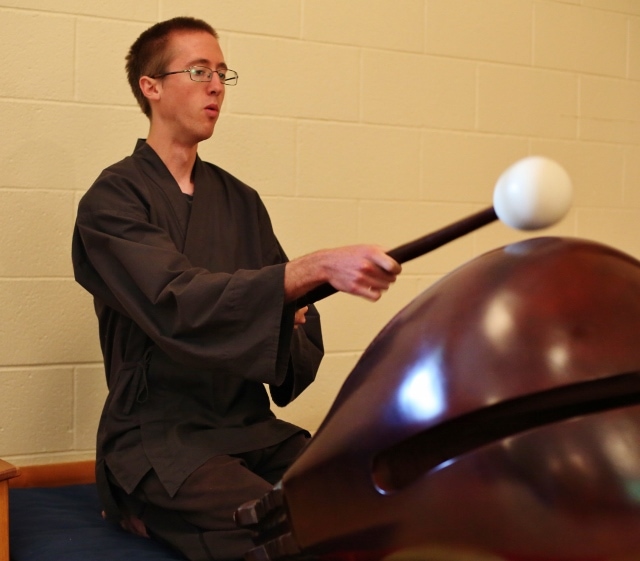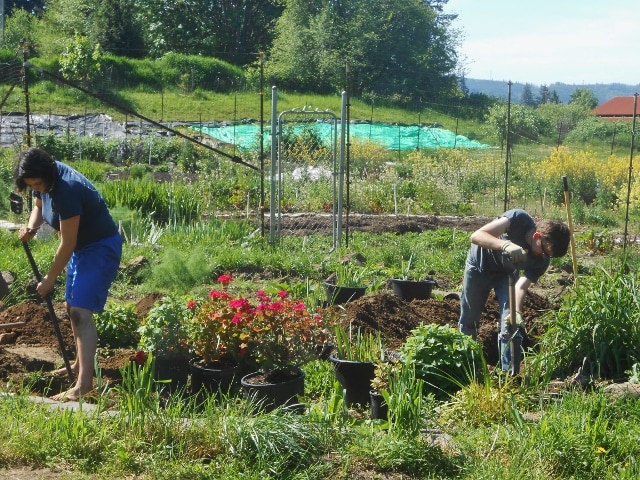Tick, tock. Tick, Tock.
I can barely make it out below the rustling when it dissolves into the clang and clatter of dishes passed, food glopped into waiting bowls, a jar scrrrrrrraped across the table, the CRICK of a chair. Beneath the breakfast melody, a bass long tone hmmmmm from the tea area. Winged flutes trill outside. A drumroll crescendos high above.
A few days in, and the sounds are getting louder. Spiritual seekers have come to brave eight full days of zazen and study the deep and powerful practices of Great Teacher Mighty Soundscape, using sound to concentrate the mind into stillness.
To open blocked channels of energy in the body, we practiced extensive toning during long hours of meditation. Like an eerie choir of aaaaaaa-zzzzzzz-mmmmm, sometimes a voice would wail out in heartache, another would soar brightly into the upper register, but all settled back into the tone soup.

Photo by Sophia Wolfe.
Our resident deejay-turned Head Monk Jogen shared his deep love of music, and we sat satuesque as our awareness sailed along through every ding, boom, or twang from classical to jazz, meditative to “cacophonous” (as Hogen described one piece), and even one that emulated ringing in the ears that made a retired music teacher start plotting the most inconspicuous route to the door.
It must have been interesting for Sunday guests who showed up midway for Hogen’s dharma talk in which he simply shook a rattle into the microphone for awhile. I wondered if other sesshin participants were hitting a wall like me. Days of straining my ears to catch every pop of the building, patter of bare feet, shovelful of dirt, rustle of aching meditators. Or periods where I heard little for hours but the wolfish Inner Critic. Then after great efforting, we were instructed to relax into the soundscape, feel the whole body and see the whole visual field as one awareness wherever we moved, from the zendo to the dining hall to work to bed.

When the retreat ended, one participant realized that while his head had been directly in front of a speaker, even during the most raucous music he had patches of memory that were completely blank, commandeered by discursive thought. “If I can tune out something like that,” he said, “there must be a lot more I’m missing. It feels important.” Jogen explained that when we aren’t aware, it’s like the experience didn’t even happen.
Another participant shared a memory of sitting on the couch listening to a record when his sister walked in. “What are you doing?” she asked. “Listening to music.” “People don’t do that,” she said. “You need to at least be sweeping or something…” Soten chimed in that the vast majority of musical exposure in our culture is from the background. I left sesshin resolved to be very deliberate. What is in the background of my life, and what is in the foreground? Where am I going to direct my limited life energy? And what am I missing out on, lost forever to my reeling broken-record thoughts?

Photo by CD Adkins.
Contact Janet at stories@zendust.org.
